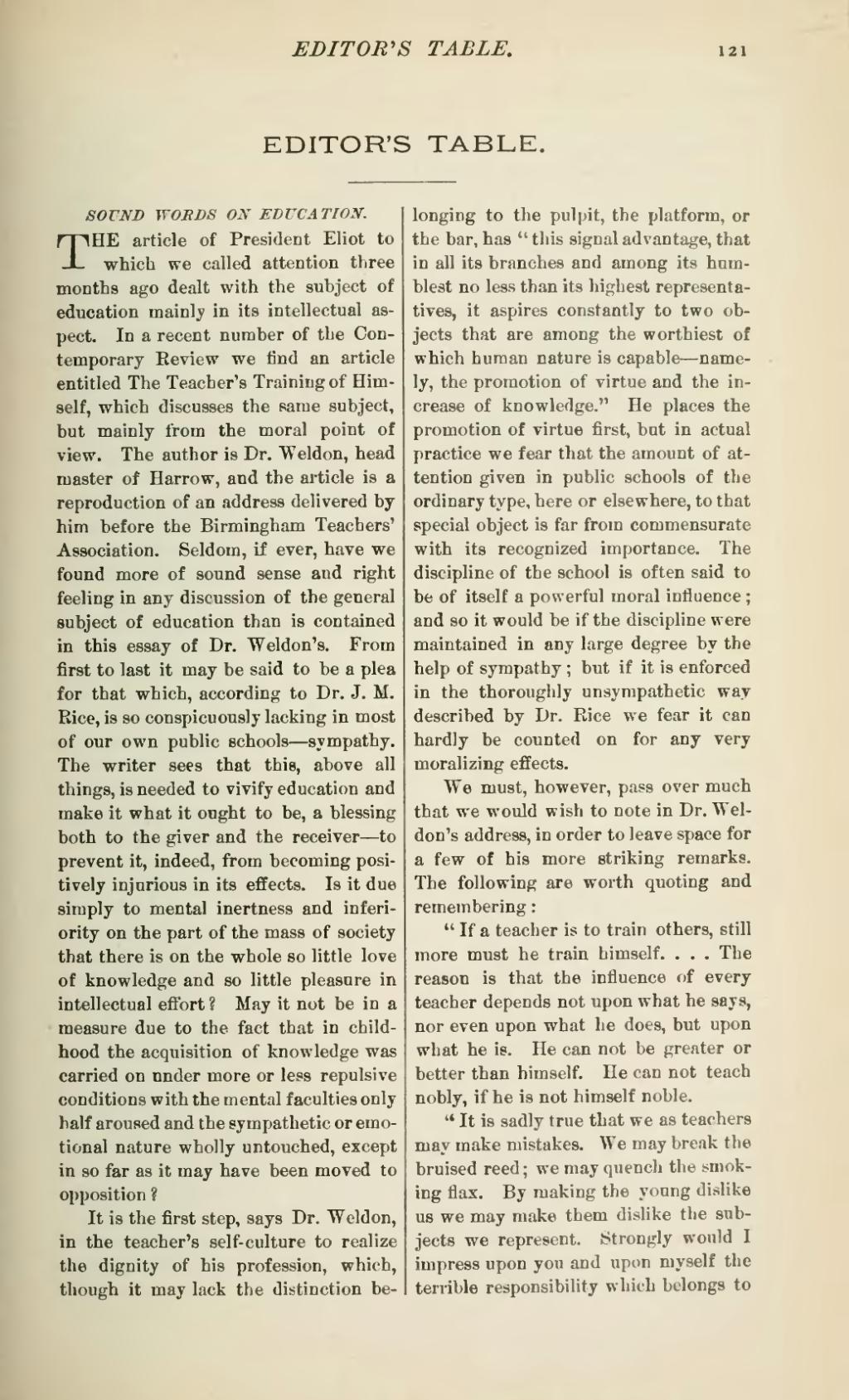SOUND WORDS ON EDUCATION.
THE article of President Eliot to which we called attention three months ago dealt with the subject of education mainly in its intellectual aspect. In a recent number of the Contemporary Review we find an article entitled The Teacher's Training of Himself, which discusses the same subject, but mainly from the moral point of view. The author is Dr. Weldon, head master of Harrow, and the article is a reproduction of an address delivered by him before the Birmingham Teachers' Association. Seldom, if ever, have we found more of sound sense and right feeling in any discussion of the general subject of education than is contained in this essay of Dr. Weldon's. From first to last it may be said to be a plea for that which, according to Dr. J. M, Rice, is so conspicuously lacking in most of our own public schools—sympathy. The writer sees that this, above all things, is needed to vivify education and make it what it ought to be, a blessing both to the giver and the receiver—to prevent it, indeed, from becoming positively injurious in its effects. Is it due simply to mental inertness and inferiority on the part of the mass of society that there is on the whole so little love of knowledge and so little pleasure in intellectual effort? May it not be in a measure due to the fact that in childhood the acquisition of knowledge was carried on under more or less repulsive conditions with the mental faculties only half aroused and the sympathetic or emotional nature wholly untouched, except in so far as it may have been moved to opposition?
It is the first step, says Dr. Weldon, in the teacher's self-culture to realize the dignity of his profession, which, though it may lack the distinction belonging to the pulpit, the platform, or the bar, has "this signal advantage, that in all its branches and among its humblest no less than its highest representatives, it aspires constantly to two objects that are among the worthiest of which human nature is capable—namely, the promotion of virtue and the increase of knowledge." He places the promotion of virtue first, but in actual practice we fear that the amount of attention given in public schools of the ordinary type, here or elsewhere, to that special object is far from commensurate with its recognized importance. The discipline of the school is often said to be of itself a powerful moral influence; and so it would be if the discipline were maintained in any large degree by the help of sympathy; but if it is enforced in the thoroughly unsympathetic way described by Dr. Rice we fear it can hardly be counted on for any very moralizing effects.
We must, however, pass over much that we would wish to note in Dr. Weldon's address, in order to leave space for a few of his more striking remarks. The following are worth quoting and remembering:
"If a teacher is to train others, still more must he train himself. ... The reason is that the influence of every teacher depends not upon what he says, nor even upon what he does, but upon what he is. He can not be greater or better than himself. He can not teach nobly, if he is not himself noble.
"It is sadly true that we as teachers may make mistakes. We may break the bruised reed; we may quench the smoking flax. By making the young dislike us we may make them dislike the subjects we represent. Strongly would I impress upon you and upon myself the terrible responsibility which belongs to

